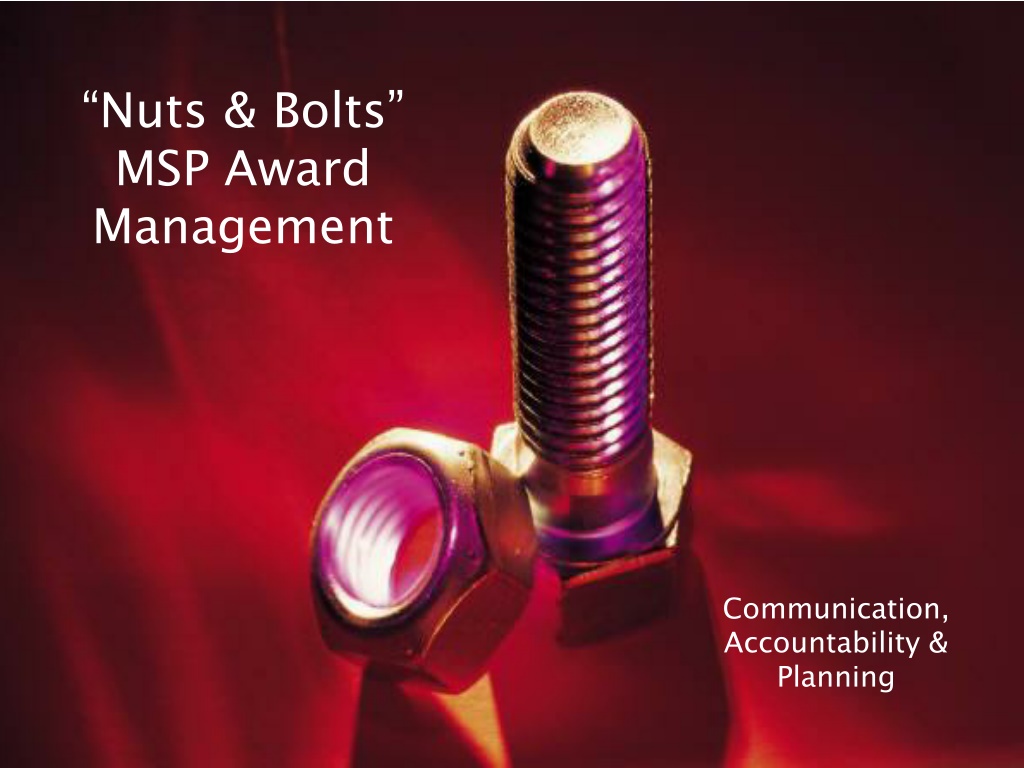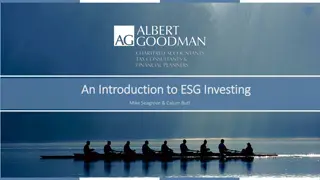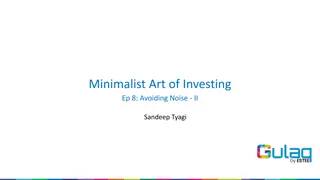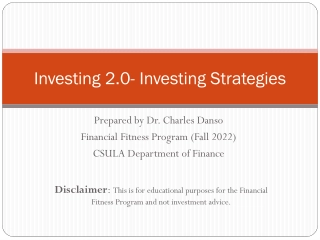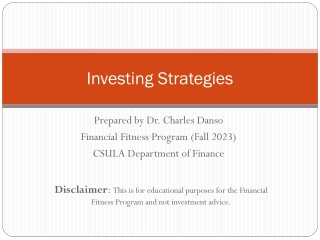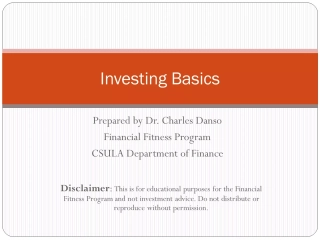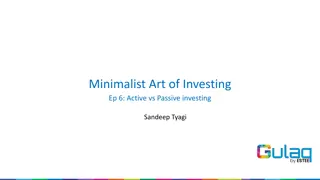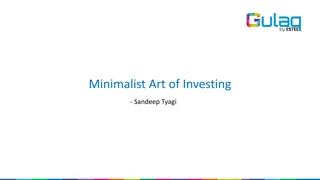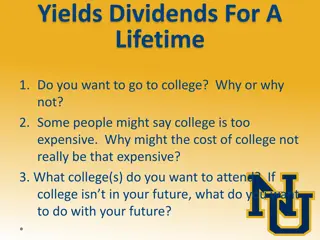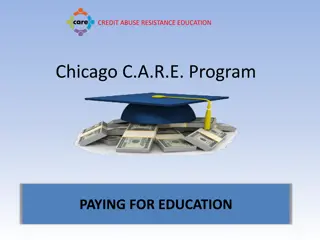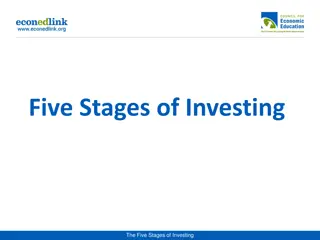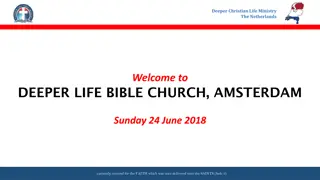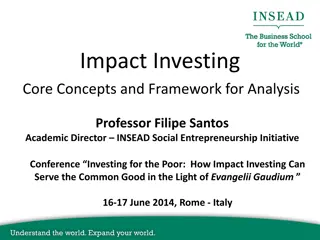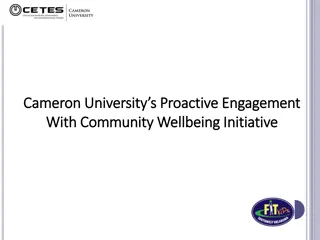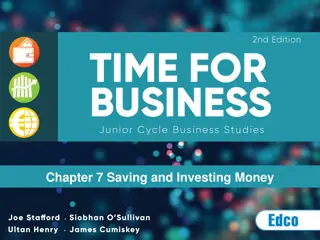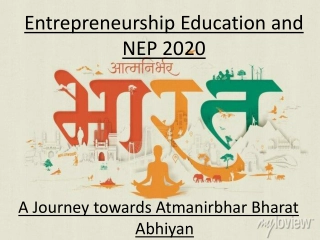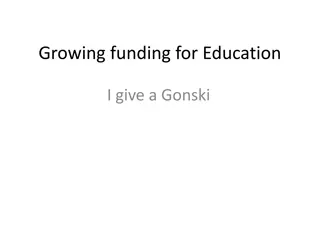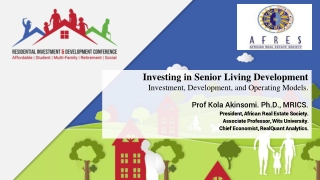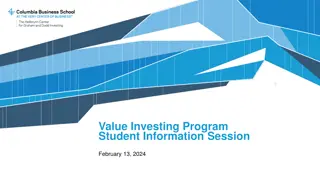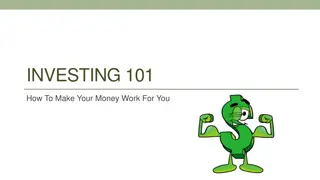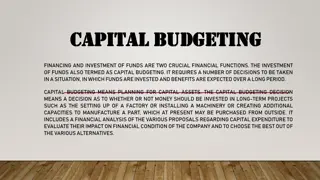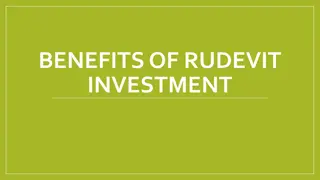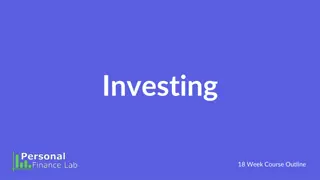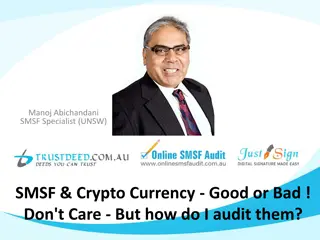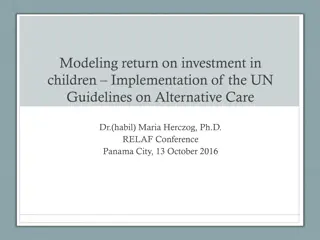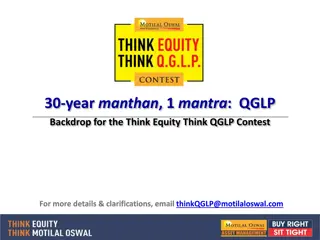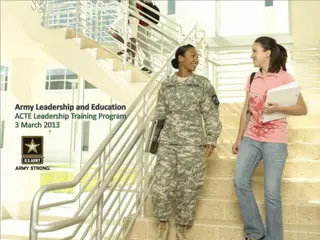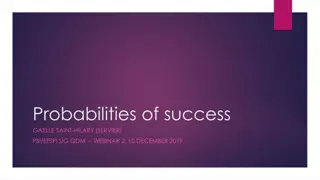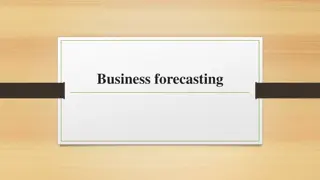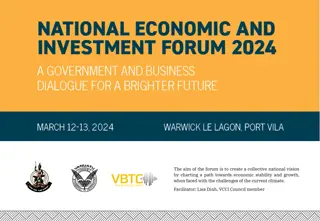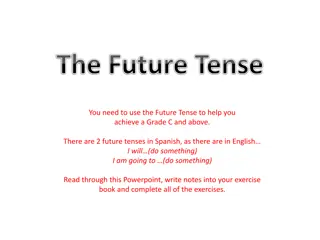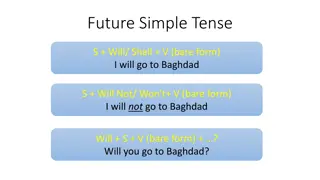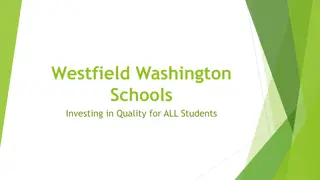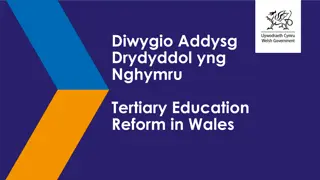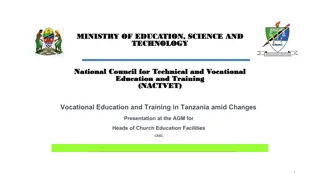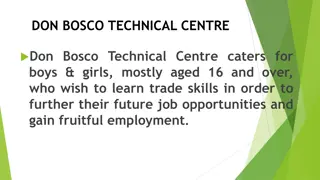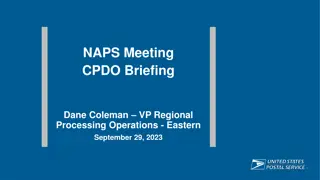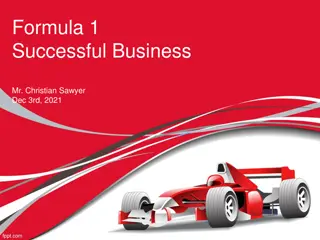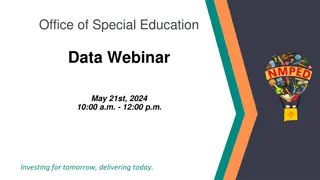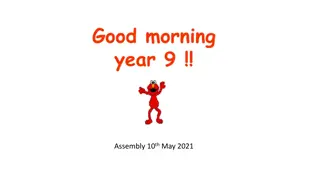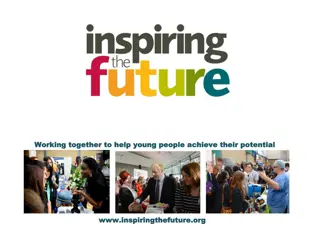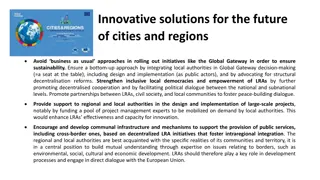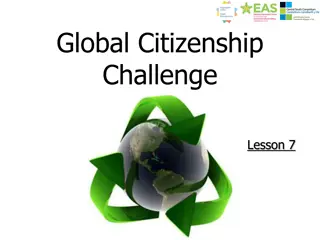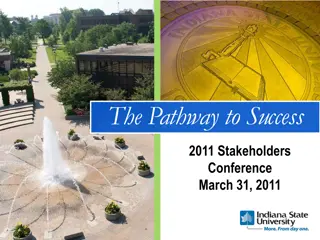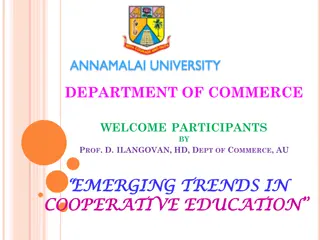Investing in Education: Strategies for Future Success
Explore different types of investment strategies in Math Science Partnership programs focusing on empowering students, teachers, and communities for tomorrow's challenges. Learn from the scholarly learning community to cultivate diverse talent in STEM fields through inclusive programs and authentic learning experiences.
Download Presentation

Please find below an Image/Link to download the presentation.
The content on the website is provided AS IS for your information and personal use only. It may not be sold, licensed, or shared on other websites without obtaining consent from the author. Download presentation by click this link. If you encounter any issues during the download, it is possible that the publisher has removed the file from their server.
E N D
Presentation Transcript
Nuts & Bolts MSP Award Management Communication, Accountability & Planning
Michael S. Jacobson Program Director Division of Undergraduate Education
Types of Investment Strategies NSF empowers discovery and innovation in all fields of science and engineering. We also strive to prepare today's students for tomorrow's challenges and opportunities. Dr. Cora Marrett
Types of Investment Strategies Math Science Partnership PK-12 Students K-12 Teachers Public/ Adults Investment Focus by Population College Faculty Graduate Students Undergrad Students
Types of Investment Strategies Math Science Partnership Mutually Beneficial Partnership
Types of Investment Strategies Math Science Partnership Mutually Beneficial Partnership K-16 Research & Development Endeavor
Types of Investment Strategies Math Science Partnership Mutually Beneficial Partnership K-16 + Research & Development Endeavor
Types of Investment Strategies Math Science Partnership Mutually Beneficial Partnership K-16 + Research & Development Endeavor Scholarly Learning Community What will WE learn from the work of your partnership? SOUND BITES
Types of Investment Strategies Welcome to New MSP Awardees Targeted Prototype 1321190 - Cultivating Diverse Talent In STEM - Uwe Hilgert (PI), University of Arizona 1321227 Creative Robotics: an inclusive program for fostering diverse STEM talent in middle school - Illah Reza Nourbakhsh (PI), Carnegie-Mellon University 1321339 Transforming Academic and Cultural Identidad through Biliteracy - Mark Ellis (PI), California State University-Fullerton 1321319 Elementary Teachers Engaged in Authentic Math and Science (ETEAMS) - James Silliman (PI), Texas A&M University Corpus Christi
Types of Investment Strategies Targeted Implementation 1319293 Students Discover: Improving Middle School STEM Outcomes through Scaling Citizen Science Projects Rob Dunn (PI), NC State 1321216 Designing for Equity by Thinking in and about Mathematics - Albert Cuoco (PI), EDC 1321343 ESCAPE: Equitable Science Curriculum Integrating Arts in Public Education - Bradley Hughes (PI), University of California-Irvine 1321242 Reinvigorating Elementary Science through a Partnership with CA Teachers (RESPeCT):Sustainable, research-based professional development with teacher leaders in a high-needs district - Nicole Wickler (PI), Cal Poly Pomona
Types of Investment Strategies RETA 1321306 Examination of Factors that Influence Long-term Sustainability of MSP Partnership Projects, Joy Frechtling, Westat Inc.
Types of Investment Strategies RETA (= Research, Evaluation and Technical Assistance) 1321306 Examination of Factors that Influence Long-term Sustainability of MSP Partnership Projects, Joy Frechtling, Westat Inc.
There are several ways that you will need to report and document the impact and effectiveness of your project to NSF 13
There are several ways that you will need to report and document the impact and effectiveness of your project to NSF NSF takes your information to document the impact and effectiveness of the MSP program to Congress 14
The annual reporting cycle Management Information System (MIS) typically opens mid November Highlights typically early-mid February NSF annual report 90 days before award anniversary date Notifications and requests Crediting NSF 15
Four Types of Reports submitted via Research.gov Annual Project Reports Due 90 days before the anniversary of your award Overdue MSP annual reports will affect timely funding of awards in other NSF programs (in other directorates, as well as in EHR) Later on, your CGI will depend on approval of the annual report
Four Types of Reports submitted via Research.gov Annual Project Reports Due 90 days before the anniversary of your award Overdue MSP annual reports will affect timely funding of awards in other NSF programs (in other directorates, as well as in EHR) Later on, your CGI will depend on approval of the annual report Interim Reports Not required A convenient way to update progress any time during or before the award period expires submit important documents (for example, strategic plan) ask your PO about his/her preference
Four Types of Reports submitted via Research.gov Final Project Reports Due three months prior to the end of the current reporting period; typically 90 days before the anniversary date of the award Overdue Final Project Reports will affect timely funding of awards in other NSF programs (in other directorates, as well as in EHR)
Four Types of Reports submitted via Research.gov Final Project Reports Due three months prior to the end of the current reporting period; typically 90 days before the anniversary date of the award Overdue Final Project Reports will affect timely funding of awards in other NSF programs (in other directorates, as well as in EHR) Project Outcomes Reports Due within 90 days the expiration date of the award Serves as a brief summary of the nature and outcomes of the project Prepared specifically for the public
Types of Investment Strategies Communicate with your program officer and keep them informed about your progress
Types of Investment Strategies Communicate with your program officer and keep them informed about your progress Not just when things are going wrong!
Types of Investment Strategies Communicate with your program officer and keep them informed about your progress Not just when things are going wrong! Tell us about the good stuff, too!!!
Types of Investment Strategies Communicate with your program officer and keep them informed about your progress Not just when things are going wrong! Tell us about the good stuff, too!!! Send us links to newspaper clippings, television, radio, campus news
Types of Investment Strategies Communicate with your program officer and keep them informed about your progress Not just when things are going wrong! Tell us about the good stuff, too!!! Send us links to newspaper clippings, television, radio, campus news Tell us when something is going to happen; a professional development workshop might be good time for a site visit by a Program Officer
Types of Investment Strategies Communicate with your program officer and keep them informed about your progress Not just when things are going wrong! Tell us about the good stuff, too!!! Send us links to newspaper clippings, television, radio, campus news Tell us when something is going to happen; a professional development workshop might be good time for a site visit by a Program Officer E-mails are usually the best way
Types of Investment Strategies Communicate with your program officer and keep them informed about your progress Not just when things are going wrong! Tell us about the good stuff, too!!! Send us links to newspaper clippings, television, radio, campus news Tell us when something is going to happen; a professional development workshop might be good time for a site visit by a Program Officer E-mails are usually the best way Please put your award number in the subject line of the email
An annual opportunity to share your perspectives, activities, outcomes (photos, newspaper clippings, TV, radio, campus news, etc.) Each year NSF collects and selects samples of these, foundation-wide NSF staff draw on these in their interactions with various (important!) constituencies may be used: To inform other agencies (DOE MSP, for example), Congress, taxpayers about NSF-funded activities In developing Congressional testimony and speeches By OLPA in developing Discovery postings on the NSF website.
Acknowledgment of Support "This material is based upon work supported by the National Science Foundation under Grant No. (NSF grant number). (Oral acknowledgment if appropriate.)
Acknowledgment of Support "This material is based upon work supported by the National Science Foundation under Grant No. (NSF grant number). (Oral acknowledgment if appropriate.) Disclaimer "Any opinions, findings, and conclusions or recommendations expressed in this material are those of the author(s) and do not necessarily reflect the views of the National Science Foundation."
Acknowledgment of Support "This material is based upon work supported by the National Science Foundation under Grant No. (NSF grant number). (Oral acknowledgment if appropriate.) Disclaimer "Any opinions, findings, and conclusions or recommendations expressed in this material are those of the author(s) and do not necessarily reflect the views of the National Science Foundation. Copies The grantee is responsible for assuring that the cognizant NSF Program Officer is provided access to, either electronically or in paper form, a copy of every publication of material based on or developed under this award, clearly labeled with the award number and other appropriate identifying information, promptly after publication.
Acknowledgment of Support "This material is based upon work supported by the National Science Foundation under Grant No. (NSF grant number). (Oral acknowledgment if appropriate.) Disclaimer "Any opinions, findings, and conclusions or recommendations expressed in this material are those of the author(s) and do not necessarily reflect the views of the National Science Foundation. Copies The grantee is responsible for assuring that the cognizant NSF Program Officer is provided access to, either electronically or in paper form, a copy of every publication of material based on or developed under this award, clearly labeled with the award number and other appropriate identifying information, promptly after publication. Logos: http://www.nsf.gov/policies/logos.jsp
A Program Officer will try to visit your project at least once Typically with 1-2 individuals who are not with NSF
A Program Officer will try to visit your project at least once Typically with 1-2 individuals who are not with NSF Needs to be more than a dog and pony show : What works, what isn t working, where you could use help, where you could help others The lens of the several program features (Partnership; Teacher, Quality, Quantity, and Diversity; Challenging Courses and Curriculum; Evidence-based Design/Outcomes; Institutional Change/Sustainability, etc.) linked to your Partnership s specific goals are useful during the visit
A Program Officer will try to visit your project at least once Typically with 1-2 individuals who are not with NSF Needs to be more than a dog and pony show : What works, what isn t working, where you could use help, where you could help others The lens of the several program features (Partnership; Teacher, Quality, Quantity, and Diversity; Challenging Courses and Curriculum; Evidence-based Design/Outcomes; Institutional Change/Sustainability, etc.) linked to your Partnership s specific goals are useful during the visit Site visit reports become part of the award s official record
Types of Investment Strategies You are all TERRIFIC for embracing this most noble of work, empowering the next generation of innovators, scientists, policy makers and knowledgeable citizens! Training engineering students to communicate science to underserved families through hands-on workshops.
Types of Investment Strategies On behalf of all of the MSP Program Officers and the National Science Foundation, we thank you and hope you enjoy the work as much as we enjoy talking about it! THANK YOU! Training engineering students to communicate science to underserved families through hands-on workshops.
Time Time MSP FY 13 MSP FY 13 MSP FY 12 MSP FY 12 STEM STEM- -C Partnerships Envisioned C Partnerships Envisioned 7:00- -8:00 7:00 8:00 Registration Renaissance Ballroom Foyer Leadership Vision Introduction & Purpose Kathleen Bergin, NSF Renaissance East Joan Ferrini-Mundy, Farnam Jahanian, Keith Marzullo, Richard Duschl, NSF Mount Vernon Square B 8:00 8:00- -8:30 8:30 Nuts & Bolts of Award Management Michael Jacobson, NSF Renaissance West A 8:30 8:30- -9:00 9:00 Institutional Change & Sustainability Joy Frechtling, Westat Renaissance West B Getting to Know You Facilitated by Kathleen Bergin, NSF Mount Vernon Square B MIS Participant Reporting Molly Hershey-Arista, Westat Renaissance West A 9:00 9:00- -9:30 9:30 Opportunities & Challenges Brainstorming Part 1 Facilitated by Jeffrey Forbes, NSF Mount Vernon Square B 9:30 9:30- -10:00 10:00 Gallery Walk Renaissance Ballroom Foyer 10:00- -10:20 10:00 10:20 10:20 10:20- -10:30 10:30 Break Renaissance Ballroom Foyer Managing Complexity April Strom, Scottsdale CC Renaissance West A Fiduciary Management Angela Turner, NSF Renaissance West A 10:30 10:30- -11:00 11:00 Opportunities & Challenges Brainstorming Part 2 Facilitated by Valerie Barr, NSF Mount Vernon Square B Needs Assessment & Evaluation John Sutton, RMC Renaissance West B 11:00 11:00- -11:30 11:30 Working Lunch, Plenary Panel on Institutional Change & Sustainability Panelists: Kacy Redd, APLU, April Strom, Scottsdale CC, Todd Ullah, LAUSD Facilitated by Maria Oliver-Hoyo, NSF Renaissance East 11:30 11:30- -12:00 12:00 12:00 12:00- -12:30 12:30 Evaluation Assistance John Sutton, RMC Renaissance West A Common Guidelines for Ed. Research Edith Gummer, NSF Renaissance West B 12:30- -1:00 12:30 1:00 Self-Assembly Session Facilitated by Jan Cuny, NSF Mount Vernon Square B MSPnet.org Joni Falk, TERC Renaissance West A Complexity Cheryl Farmer, UT Austin Renaissance West B Break Renaissance Ballroom Foyer 1:00 1:00- -1:30 1:30 1:30- -1:40 1:30 1:40 1:40 1:40- -2:00 2:00 Discussions about Institutional Change & Sustainability, Project Management & Complexity, and Educational Research & Evaluation Facilitated by Michael Jacobson, NSF Renaissance East Vision Building Kathleen Bergin, NSF Mount Vernon Square B 2:00 2:00- -2:30 2:30 Solicitation Review, Q&A Kathleen Bergin & Jan Cuny, NSF Mount Vernon Square B Meet with Program Officers, Q&A Renaissance East 2:30- -3:00 2:30 3:00 Report Out & Community Building Kathleen Bergin, NSF Renaissance East Closing Remarks Kathleen Bergin & Jan Cuny, NSF Renaissance East 3:00 3:00- -3:30 3:30 3:30- -3:50 3:30 3:50
Types of Investment Strategies QUESTIONS?
